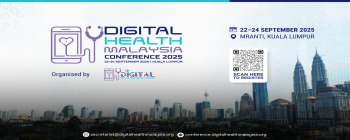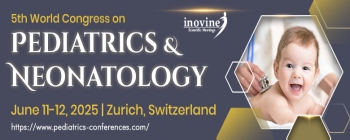
The 44th World Nursing and Healthcare Conference, themed "Advancing Wellness and Equity: Nursing Strategies for a Healthier Future," will convene in Toronto, Canada, on May 12-13, 2025. Organized under the short name Nursing 2025, this premier event will gather leading nurses, healthcare professionals, researchers, educators, and policymakers globally to explore the latest advancements and innovations in nursing and healthcare. The conference will feature a rich program including keynote speeches, plenary sessions, workshops, and poster presentations. Attendees will have the opportunity to engage with field experts, exchange ideas, and delve into cutting-edge topics such as nursing education and practice, healthcare policy and management, mental health nursing, patient safety, and quality care. Participants can anticipate gaining valuable insights, skills, and networking opportunities to drive positive changes and contribute to the evolution of healthcare delivery and outcomes. Join us at Nursing 2025 to collaborate and shape the future of healthcare through innovation and strategic thinking.
Women, trauma and alcohol dependency: Connections and disconnections in alcohol treatment for women
Deanna L Mulvihill, RN PhD, TLI Foundation, USA Deanna L Mulvihill, RN PhD, TLI Foundation, USA
Abstract (300 word limit)
Statement of the Problem: Women who have experienced intimate partnerviolence (IPV) are at greater risk for physical and mental health problems including posttraumatic stress disorder (PTSD) and alcohol dependency. On their own IPV, PTSD and alcohol dependency result in significant personal, social and economic cost and the impact of all three may compound these costs. Researchers have reported that women with these experiences are more difficult to treat; many do not access treatment and those who do, frequently do not stay because of difficulty maintaining helping relationships. However, these women’s perspective has not been previously studied. The purpose of this study is to describe the experience of seeking help for alcohol dependency by women with PTSD and a history of IPV in the context in which it occurs. Methodology & Theoretical Orientation: An inter subjective ethnographic study using hermeneutic dialogue was utilized during participant observation, in- depth interviews and focus groups. An ecological framework was utilized to focus on the interaction between the counselors and the staff to understand this relationships and the context in which it occurs. Findings: The women in this study were very active help seekers. They encountered many gaps in continuity of care including discharge because of relapse. Although the treatment center was a warm, healing and spiritual place, the women left the center without treatment for their trauma needs and many without any referral to address these outstanding issues. Conclusion & Significance: Women with alcohol dependence and PTSD with a history of IPV want help however the health and social services do not always recognize their calls for help or their symptoms of distress. Recommendations are made for treatment centers to become trauma- informed that would help this recognition.
Image
Recent Publications (minimum 5)
- Harper C (2009) The neuropathology of alcohol-related braindamage. Alcohol Alcohol 44:136-140.
- Heilig M, Egli M (2006) Pharmacological treatment of alcohol dependence: Target symptoms and target mechanisms. Pharmacology and therapeutics 111:855-876.
- LiX, SchwachaMG, ChaudryIH, ChoudhryMA (2008) Acutealcohol intoxication potentiates neutrophil-mediated intestinal tissue damage after burn injury. Shock 29:377.
- Room R, BaborT, Rehm J (2005) Alcohol and public health. Lancet
365: 519-530.
5. Sullivan EV, Zahr NM (2008) Neuroinflammation as a neurotoxic mechanism in alcoholism: Commentary on “Increased MCP- 1 and microglia in various regions of human alcoholic brain”. Experimental neurology 213:10-17.
Biography (150 word limit)
Deanna Mulvihill has her expertise in evaluation and passion in improving the health and wellbeing. Her open and contextual evaluation model based on responsive constructivists creates new pathways for improving healthcare. She has built this model after years of experience in research, evaluation, teaching and administration both in hospital and education institutions. The foundation is based on fourth generation evaluation (Guba& Lincoln, 1989) which is a methodology that utilizes the previous generations of evaluation: measurement, description and judgment. It allows for value-pluralism. This approach is responsive to all stakeholders and has a different way of focusing.
Email: drXXXXXXX@xxxmail.com
Notes/Comments:
Presenting author details
Full name:
Contact number:
Twitter account:
Linked In account:
Session name/ number:
Category: (Oral presentation/ Poster presentation)








